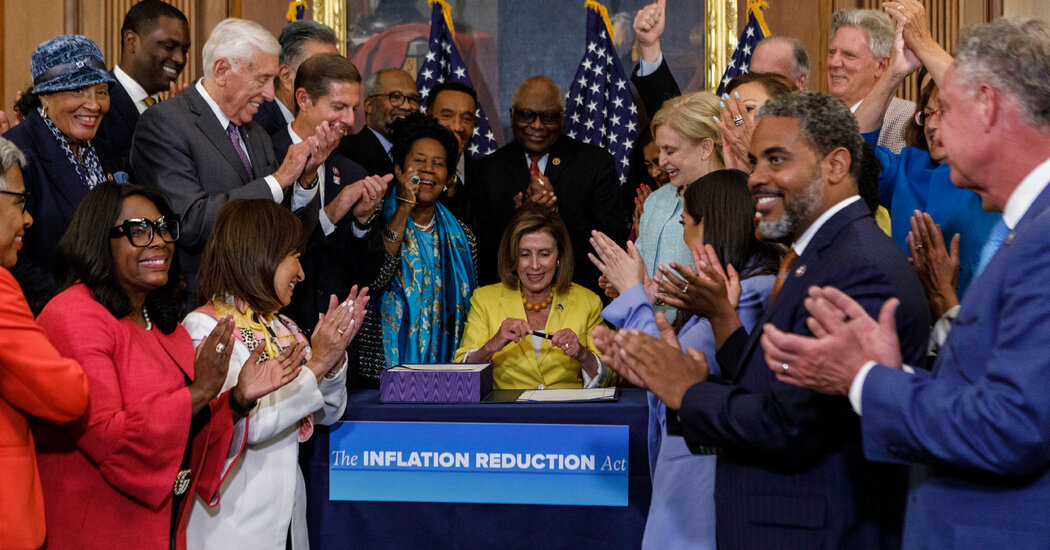The Clean Air Act was enacted in 1970, on the start of the environmental motion, and is the first regulation defining the E.P.A.’s obligations for shielding and regulating air high quality. It was considerably expanded in 1990 to curb different main environmental threats like acid rain and concrete smog.
The act does outline greenhouse gases in some sections, however doesn’t explicitly direct the Environmental Safety Company to manage carbon dioxide. Quite, it extra broadly asks the company to manage pollution that “endanger human well being.” In 2007, the Supreme Court docket, in Massachusetts vs. E.P.A., No. 05-1120, ordered the company to find out whether or not carbon dioxide match that description. In 2009, the E.P.A. concluded that it did.
That conclusion meant carbon dioxide might be legally outlined as a pollutant and controlled. The Obama and Biden administrations used that discovering to justify laws on gasoline-powered autos and coal and gas-burning energy vegetation, and a number of other Supreme Court docket circumstances subsequently upheld that authority.
But, as a result of Congress had by no means earlier than immediately addressed the difficulty, challenges have continued. In West Virginia vs. E.P.A., No. 20-1530, the landmark ruling this 12 months, conservative Supreme Court docket justices made clear that if lawmakers actually wished the federal government to maneuver away from fossil fuels, they need to say so.
“One threshold assumption within the ruling was that Congress had not made it abundantly clear that E.P.A. had a accountability to deal with local weather air pollution from the facility sector,” mentioned Vickie Patton, common counsel for the Environmental Protection Fund. “Nicely, it’s now abundantly clear,” she mentioned.
Some specialists performed down the impact of the provisions. Jeff Holmstead, an vitality lawyer who served within the E.P.A. throughout each Bush administrations, mentioned there was a near-zero likelihood that authorized efforts by some conservative teams to get rid of the federal government’s skill to manage local weather air pollution would have prevailed anyway.

